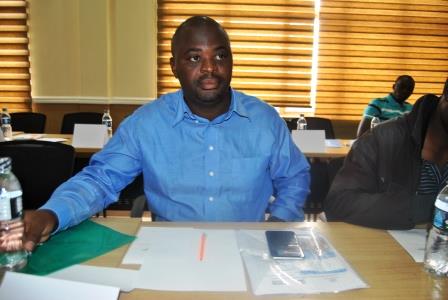
MZIMBA, Malawi – A senior traditional leader in northern Malawi Inkosi (Chief) Mabilabo Jere has urged the government to enact the proposed Termination of Pregnancy Bill. Writing in a Sexual and Reproductive Health Column which is produced by Centre for Solutions Journalism and published in the Daily Times INKOSI MABILABO JERE argues:
Unsafe abortions! A big problem engulfed with huge silence. A problem which is killing women and girls in rural areas of Malawi yet we hardly talk about it. I know it. My subjects know it but we are all silent about it.
Should the silence continue when many women in Malawi are losing lives due to unsafe abortions?
No. Not all. Time is ripe that we should lift the lid of silence on abortion. We can no longer keep quiet about it.
As a traditional leader, living with my subjects in the rural district of Mzimba in northern Malawi, I feel sad when attending a funeral of a woman and a girl who has died due to unsafe abortion.
As far as I am concerned, the issue about abortion hinges on discrimination and class issue. I know that women in urban areas have access to safe abortions. If an urbanite woman or girl does not want to keep her early pregnancy to term, it is not an issue because she simply walks to the private clinic and get a service.
No one knows about what they have done.
The problem of unsafe abortion is the burden of rural poor women and girls, who do not have the opportunities that their counterparts in the cities have.
Instead of seeking safe medical procedures, rural women go to herbalists to seek assistance. In their quest, to help the desperate women the herbalists administer all sorts of poisonous concoctions which unfortunately result in complications and even deaths.
My point is that the current abortion law only harms poor rural women and girls while urbanites are living in another world where access to safe medical procedures for the terminations of unwanted pregnancies are available.
The solution to the problem that many rural women face simply lies in the relaxation of the current abortion laws as most of our neighbouring countries did. Examples are many.
Parliament in neighbouring Mozambique reviewed the country’s abortion laws. As a result, women in Mozambique are accessing abortion services in both public and private hospitals without problems.
Our other neighbour, Zambia, upon realizing that the abortion laws inherited from the colonial masters were oppressive, reviewed them and women wishing to terminate their unwanted pregnancies do so in public health facilities.
Zimbabwe upon realizing that its abortion laws never benefitted its citizenry did the needful. In Zimbabwe, if a girl or a woman is raped, she rushes to the hospital where the unplanned pregnancy is terminated.
Just recently Rwanda took a critical step toward upholding women’s fundamental human rights in ensuring that women and girls do not resort to unsafe abortions. The government of Rwanda has revised the Penal Code to expand access to safe abortion services.
The good news is that the revised law in Rwanda allows minors to legally obtain safe abortions. It is obvious that by doing that the high rates of maternal mortality and morbidity that arise from unsafe abortions will drastically be reduced in that country. Unfortunately, here we are stuck with abortions laws formulated during colonial era.
I am aware that some oppose abortion on religious grounds. But respecting those who hold different views because of their religion, should not affect law reform in any way. In this regard, I can cite an example of Italy, a country that hosts the headquarters of the Roman Catholic Church at Vatican in Rome.
Despite being the citadel of the Catholic Church at Vatican in Rome, Italy has liberal abortion laws passed way back in 1978. The fact that Italy has liberal abortion laws teaches us one thing. Religious freedom is a personal freedom and not something that should be imposed on everyone on a mandatory basis. It is possible to be a religious society while having liberal laws on abortion.
Mulling over this issue, I always ask myself: Our neighbours, Zambia, Zimbabwe, Mozambique and South Africa have liberal or relaxed abortion laws. What is wrong us with us here in Malawi? Why are we still clinging to draconian abortion laws enacted during the colonial era? Are we happy that women should continue dying from unsafe abortions when the Malawi Law Commission has already reviewed abortion laws that can arrest the situation? Why is the enactment of the liberal law on abortion dilly-dallying?
Let’s realise that the issue is not about the rights and wrongs of abortion. It is not even a religious debate about whether abortion is a sin or not. It is about how we can save the lives of women who are dying due to unsafe abortions in our villages.
If such women were allowed to access safe abortion services in the hospitals, their deaths would have been prevented. Saving women’s lives starts with the law reform process, hence the need to enact Malawi’s proposed Termination of Pregnancy Bill.
